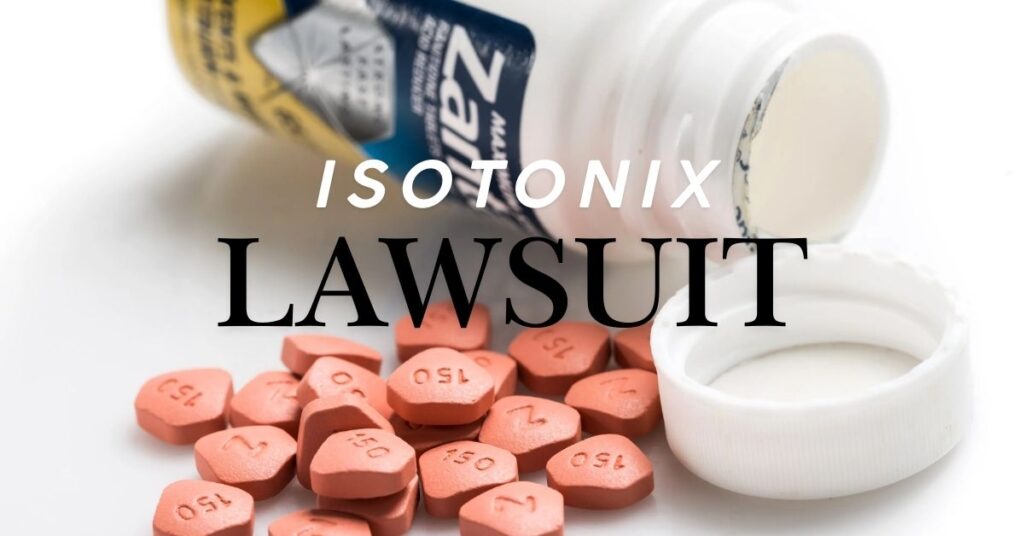The Isotonix lawsuit has stirred up quite a bit of conversation within the supplement industry. As a prominent player in the market, Isotonix claims to provide health benefits through its unique isotonic solutions.
However, legal challenges have raised serious questions about the company’s practices and product transparency. In this article, we’ll delve deep into the Isotonix lawsuit, examining the origins of the legal controversy, the key allegations, and what this means for consumers and investors alike.
What is Isotonix?
Isotonix is a brand of dietary supplements known for its innovative isotonic delivery system, which purportedly enhances nutrient absorption. This system allows the body to receive essential vitamins and minerals quickly and effectively. Market America uses a multi-level marketing (MLM) business model to distribute its products.
This allows individuals to earn income by selling Isotonix products and recruiting others to do the same. While many users praise Isotonix for its health benefits, including energy boosts and immunity improvement, the brand has come under scrutiny for its marketing tactics and the scientific backing of its claims.
The Origins of the Isotonix Lawsuit
- The Isotonix lawsuit began as a response to growing consumer complaints about misleading marketing practices.
- Several individuals voiced concerns that Isotonix’s advertisements exaggerated the effectiveness of its dietary supplements.
- Consumers reported discrepancies between the claimed health benefits and their actual experiences with the products.
- Increased scrutiny led to formal legal action, highlighting the need for accountability in the supplement industry.
- The lawsuit gained traction as more people came forward with similar concerns, calling attention to potential ethical violations by Market America.
Key Allegations Against Isotonix
At the heart of the Isotonix lawsuit are several serious allegations. Consumers have claimed that the marketing practices employed by Market America were not only misleading but also deceptive.
This includes a range of concerns about false advertising and exaggerated claims regarding the effectiveness of the supplements. Understanding these key allegations helps shed light on the broader issues at play in the supplement industry.
False Advertising Claims
One of the most prominent accusations against Isotonix involves false advertising claims. Consumers argue that the company overstated the effectiveness of its products, creating a false impression of the health benefits associated with its supplements. Advertisements suggested that taking Isotonix products could significantly improve energy levels and overall health.
This led many to believe they would experience immediate results. Such misleading advertisements can misinform potential customers and erode trust in the brand, raising ethical questions about the marketing practices of dietary supplement companies.
Pyramid Scheme Allegations
The Isotonix lawsuit also brings to light allegations of operating a pyramid scheme. Critics argue that the MLM structure encourages recruitment over actual product sales, creating an unsustainable business model. In a pyramid scheme, the primary focus shifts from selling products to recruiting new members.
This often leads to financial losses for those at the bottom of the pyramid. This model has raised concerns among consumers and legal experts alike, who argue that it can exploit individuals seeking to improve their financial situations.
Exaggerative Profit Claims
Another significant allegation is that Market America made exaggerative profit claims to lure potential distributors into their MLM scheme. Promises of substantial earnings were often presented without a clear picture of the actual risks involved.
Many individuals joined the business believing they would earn a comfortable income, only to find that their earnings fell far short of the initial projections. This not only creates dissatisfaction among members but can also lead to potential legal ramifications for the company if proven misleading.
FDA Warnings and Other Legal Issues
Throughout the Isotonix lawsuit, the company has faced additional scrutiny, including FDA warnings about product safety and efficacy. The FDA has issued warning letters to companies that make unfounded health claims, and Isotonix is no exception.
These warnings serve as a reminder that dietary supplement companies must adhere to strict regulations regarding product labeling and marketing practices. The presence of legal issues and regulatory scrutiny adds another layer of complexity to the ongoing lawsuit.
Read Also: Buy XEM P2B: Unlocking Investment Opportunities
Legal Proceedings and Outcomes
The legal proceedings surrounding the Isotonix lawsuit have been extensive, involving multiple hearings and testimonies from affected consumers. The outcomes of these proceedings can have far-reaching implications for both the company and its consumers.
As the case unfolds, observers are closely monitoring developments, hoping for a resolution that addresses consumer concerns while holding the company accountable for its practices. The potential for settlements or rulings that mandate changes in advertising and sales practices remains a possibility.
Impact of the Lawsuit on Consumers
The impact of the Isotonix lawsuit on consumers cannot be overstated. Those who have invested in Isotonix products may feel a sense of betrayal if the claims made by the company are proven to be misleading.
The lawsuit serves as a wake-up call, highlighting the need for consumers to conduct thorough research before purchasing dietary supplements. Understanding the potential risks and rewards associated with such products is crucial for making informed decisions.
Lessons for the Supplement Industry
The Isotonix lawsuit serves as a critical case study for the supplement industry. It underscores the importance of transparency and honesty in marketing practices. Consumers are becoming more aware of the implications of misleading claims.
Companies must prioritize integrity and scientific validation in their product offerings. This legal battle may catalyze a shift in industry standards, pushing companies to adopt more ethical marketing practices to maintain consumer trust.
Consumer Advice and Safety Tips
For consumers navigating the complex world of dietary supplements, it is vital to remain vigilant. Researching products before purchase is essential, as is looking for reputable sources of information.
Be wary of misleading advertisements and remember that not all claims are backed by scientific evidence. Consulting with healthcare professionals before starting any new supplement regimen can also provide valuable insights into potential health benefits and risks.
Isotonix’s Response to the Allegations
In response to the allegations made in the Isotonix lawsuit, the company has publicly denied any wrongdoing. Isotonix maintains that its products are safe and effective, and that its marketing practices align with industry standards.
Despite these claims, the ongoing lawsuit has placed the company under considerable scrutiny, and its ability to regain consumer trust will depend on how it addresses these allegations moving forward.
The Future of Isotonix and Market America
Looking ahead, the future of Isotonix and Market America remains uncertain. The outcome of the Isotonix lawsuit could significantly affect the company’s operations and reputation.
Depending on the legal outcomes, Isotonix may need to revise its marketing strategies and enhance product transparency to regain consumer confidence. As the supplement industry evolves, companies will likely face increasing pressure to uphold high ethical standards and prioritize consumer safety.
Read Also: Paul Mackoul MD Lawsuit 2024: A Deep Dive Into The Controversy
Conclusion
The Isotonix lawsuit highlights the complex relationship between consumer expectations and corporate responsibility within the supplement industry. As consumers become more informed and cautious about their health choices, companies must adapt to maintain trust and credibility.
This legal controversy serves as a reminder that transparency and ethical marketing practices are not just ideals but necessities in today’s market. The outcome of this lawsuit will likely shape the future of Isotonix, Market America, and the broader landscape of dietary supplements, urging all stakeholders to prioritize integrity and accountability.
As the Isotonix lawsuit unfolds, staying informed will empower consumers to make wise choices in their health and wellness journeys. The conversation surrounding this lawsuit may lead to positive changes within the supplement industry, fostering a safer and more transparent marketplace for everyone.
FAQs
What are the side effects of Isotonix OPC?
Common side effects of Isotonix OPC (Oligomeric Proanthocyanidin Complex) may include mild digestive upset, headaches, or allergic reactions in sensitive individuals. It’s important to consult with a healthcare professional before starting any new supplement to understand potential interactions or side effects.
When should I drink Isotonix?
You should drink Isotonix on an empty stomach for optimal absorption, ideally in the morning or at least 30 minutes before meals. Mixing it with water helps maximize its effectiveness.
How does Isotonix work?
Isotonix works by delivering nutrients in a highly absorbable liquid form. Its isotonic solution allows for faster absorption in the bloodstream, enhancing the bioavailability of antioxidants, vitamins, and minerals, which can help support overall health.
Who makes Isotonix?
Isotonix is produced by Market America, a company that specializes in health supplements and skincare products. Market America focuses on providing high-quality nutritional solutions through their line of Isotonix products.
Unlock More Stories on Topics You Love…

As a seasoned website Content Writer with three years of experience, I specialize in delivering engaging and informative content on a variety of general topics. Explore my work at “https://timesrenewal.com/“.






